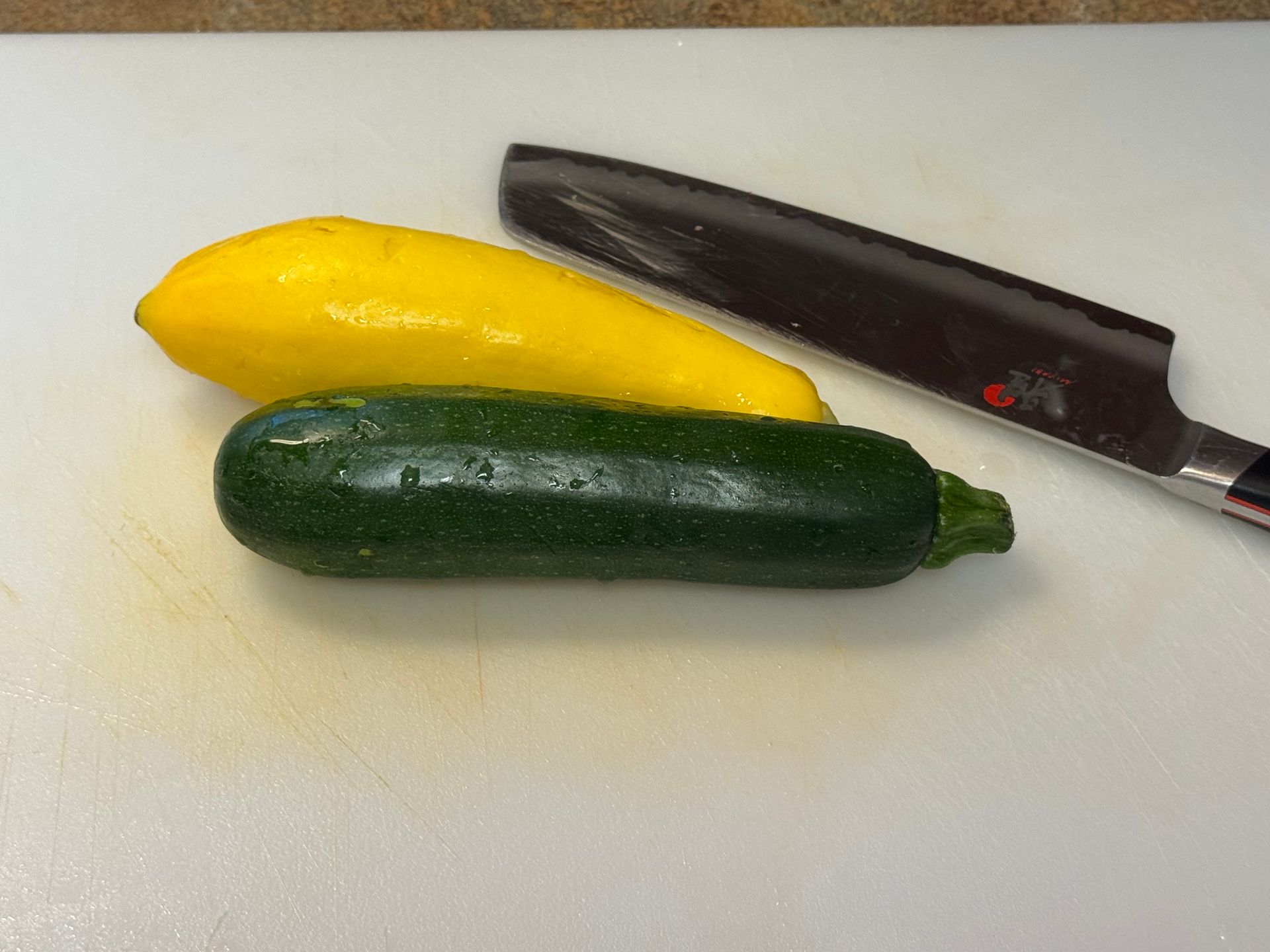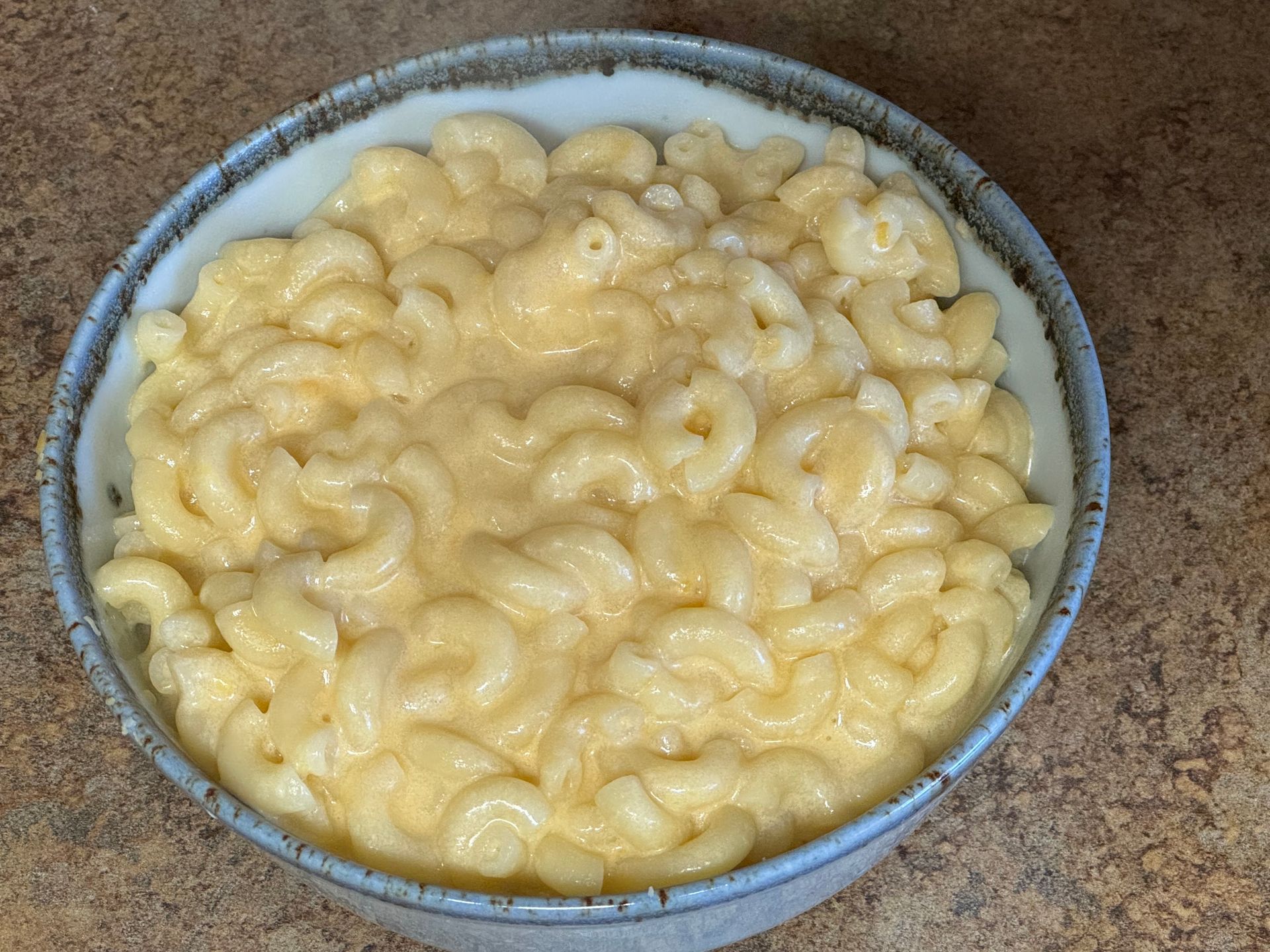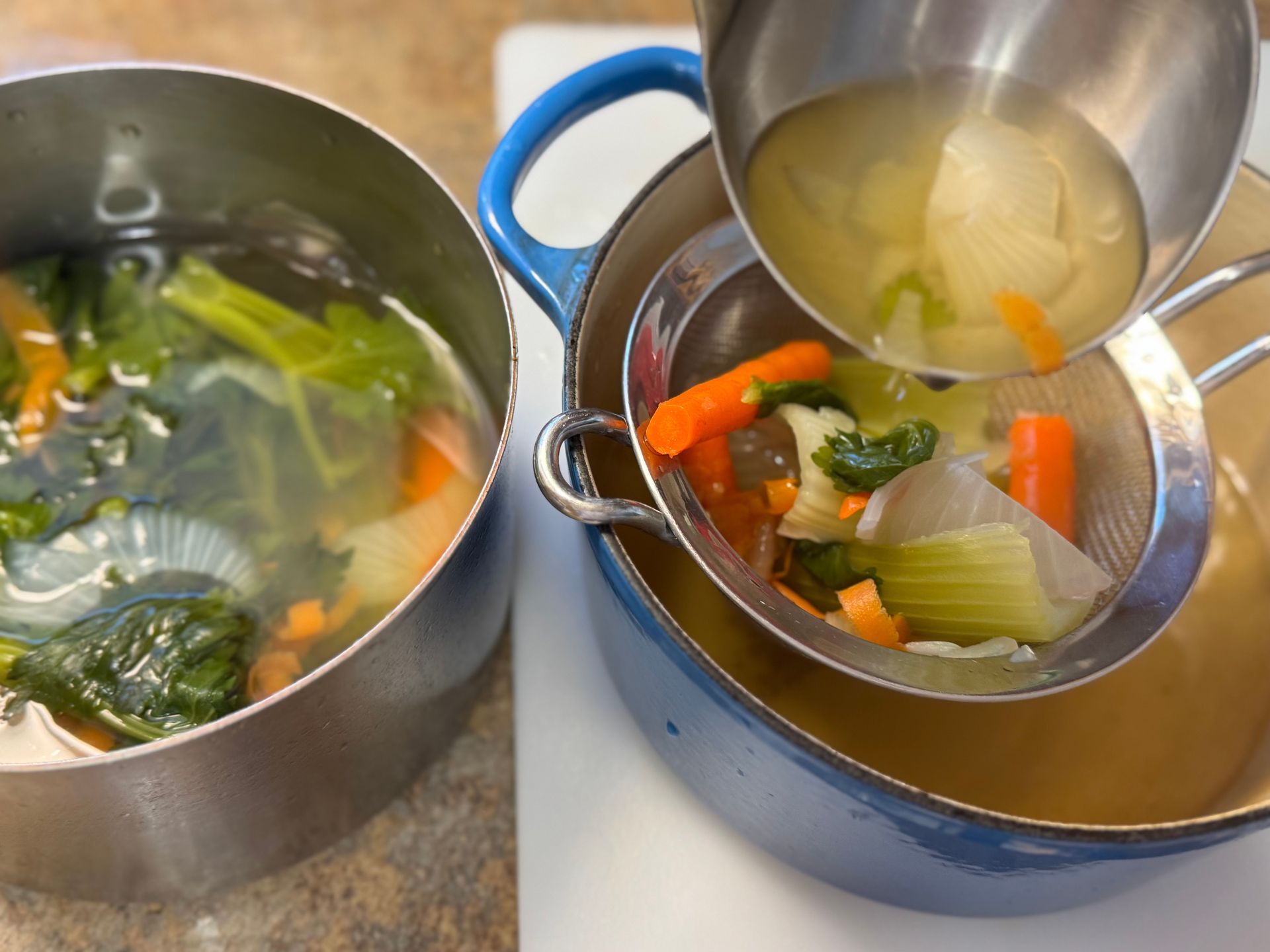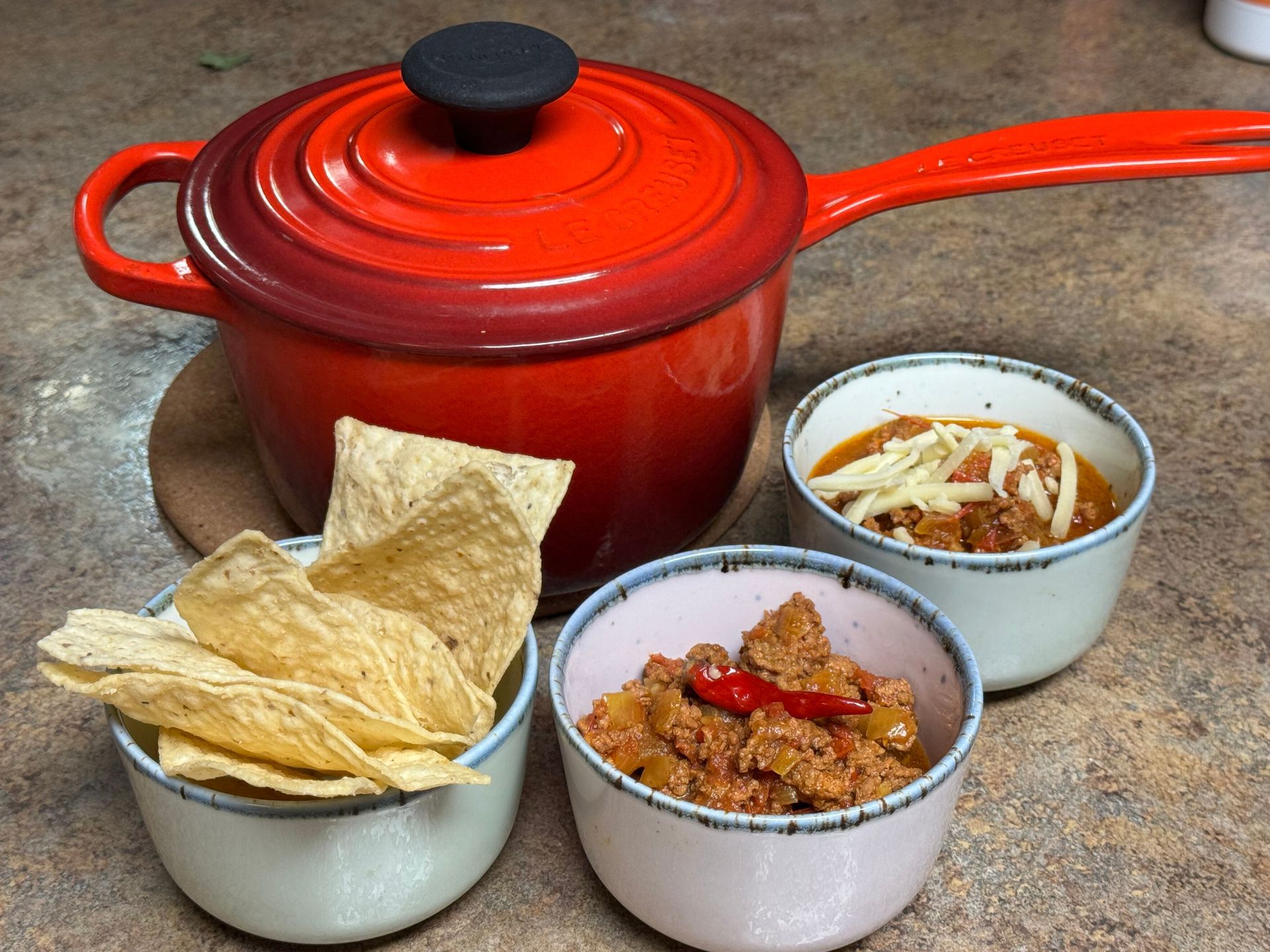
A highlight of my year is judging a neighborhood chili (and apple pie) contest over Veterans Day weekend. Each year the competition grows, and the chili just keeps getting better.
Some participants get creative with their garnishes—topping their chili with crème fraîche, yogurt, sour cream, or an assortment of snacks like Fritos, Bugles, and tortilla chips. I’m always impressed by the effort and flavor combinations that home cooks bring to the table.
It’s a pleasure to support our veterans and be part of a community that celebrates good food and camaraderie. I was so inspired this year that I decided to share one of my own chili recipes.
Chili con Carne
Few dishes capture the spirit of American cuisine like chili. It’s a recipe (or recipes) rooted in tradition and culinary evolution .
I remember researching chili con carne when preparing to teach American Regional kitchen at the CIA. It was interesting to learn how different recipes are in various regions of the Southwest.
Historically, chili con carne originated in the American Southwest, influenced by Mexican cooking traditions and the resourcefulness of frontier cooks. Early versions combined dried chilies, spices, and meat preserved with fat — a practical meal designed to nourish and sustain. I wonder if the meat used was beef or bison?
Over time, chili evolved into a regional specialty, from Texas-style with no beans to the tomato-rich variations of the Midwest and beyond.
From a Chef's perspective, chili is a remarkable example of balance and chemistry. The heat of capsaicin — the active compound in chili peppers — stimulates the palate and releases endorphins, I like to add chipotle to my chili for a little depth of flavor.
This recipe represents my version of chili: deeply flavored, balanced, and satisfying. Whether you’re serving it for friends, family, or a neighborhood cook-off, it’s a dish that celebrates both tradition and taste.
Prep Time: 30 min
Cooking Time: 90 min
Yield: 10 portions
Ingredients
3 Tbsp Olive Oil
2 Cups Onions, small dice
8 ea Garlic cloves, minced
1 Cup Red bell pepper, small dice
1/2 Cup Red jalapeno pepper, minced
1 Cup Tomato paste)
3 lbs Ground meat (beef, bison, or lamb) 80/20 mix
3 Cups Plum Tomatoes, small diced
1 Tbsp Oregano dried/ I prefer fresh oregano leaves
1/2 Cup Spanish Paprika
4 Tbsp. Chili Powder
2 Tbsp Cumin, ground
1 tsp Cayenne Pepper
1 qt Brown Veal Sauce (Espagnole Sauce)
2 Cups Pinto beans canned product (optional)
t.t. Salt & Pepper
How to prepare Chili con Carne
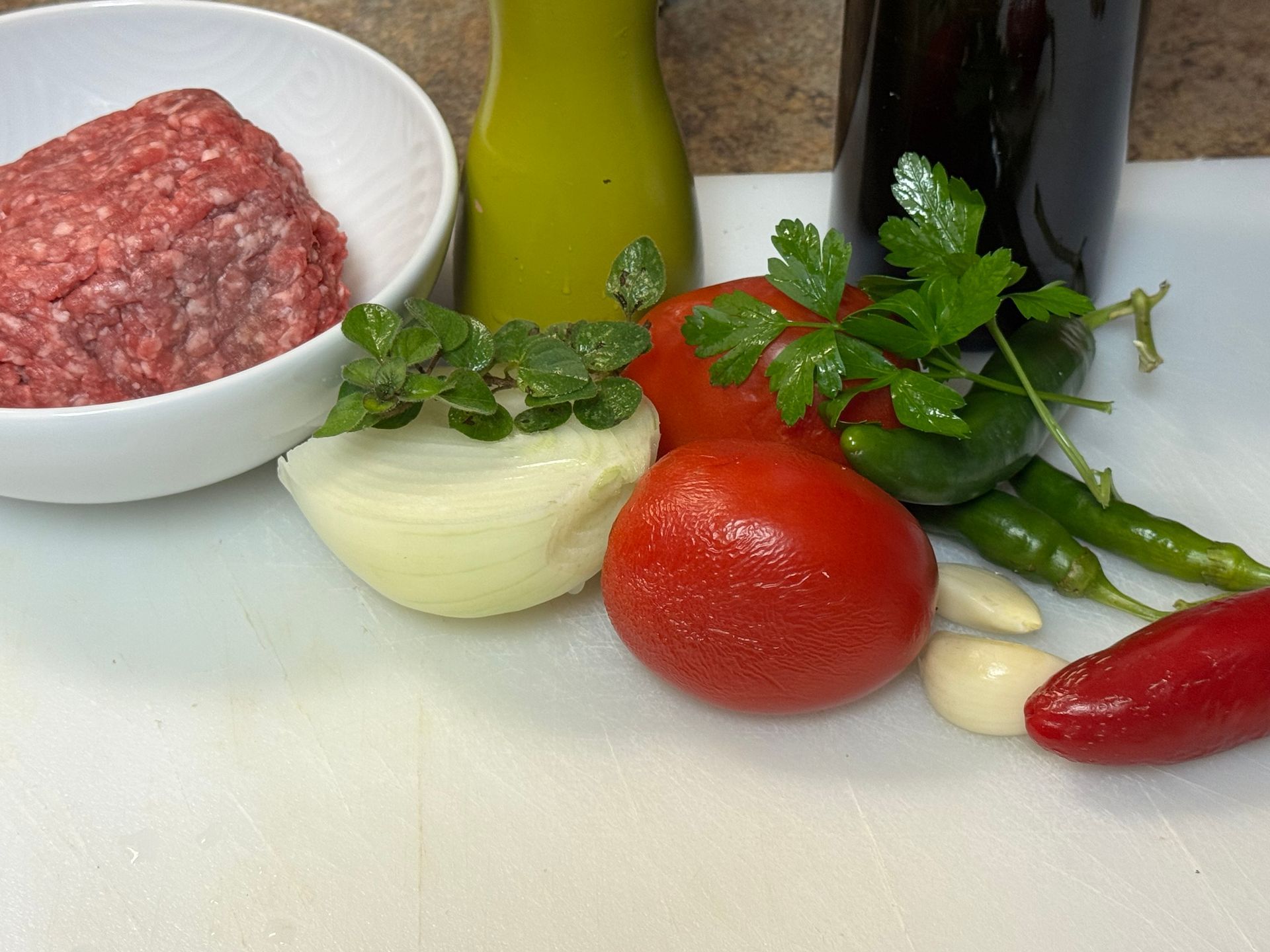
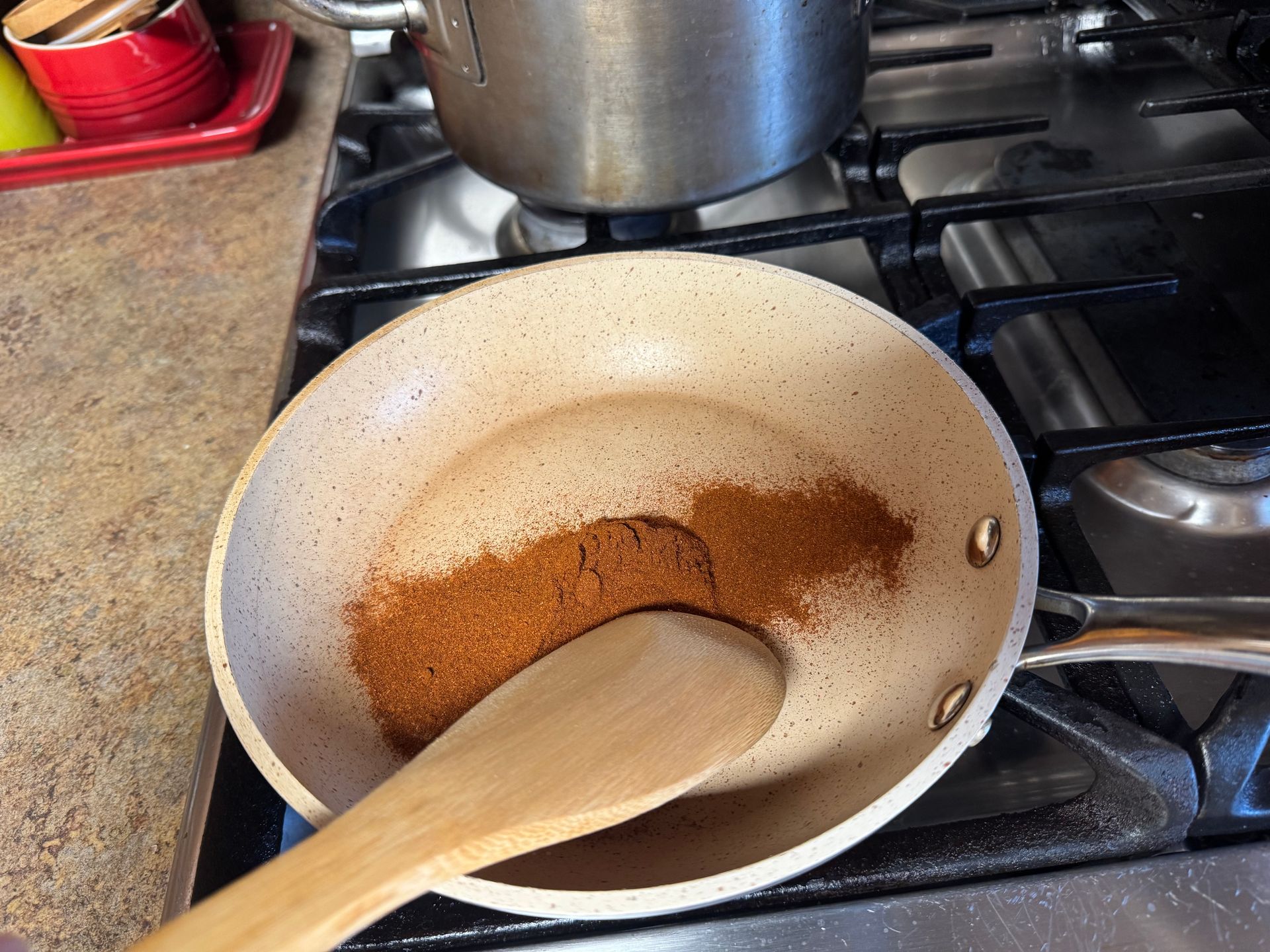
Step 1
Assemble the ingredients; place all of the spices into a small, teflon pan and toast at medium heat, stirring with a wooden spoon. This will improve the flavor greatly. (especially if some of the spices have been in the cupboard for a long while)
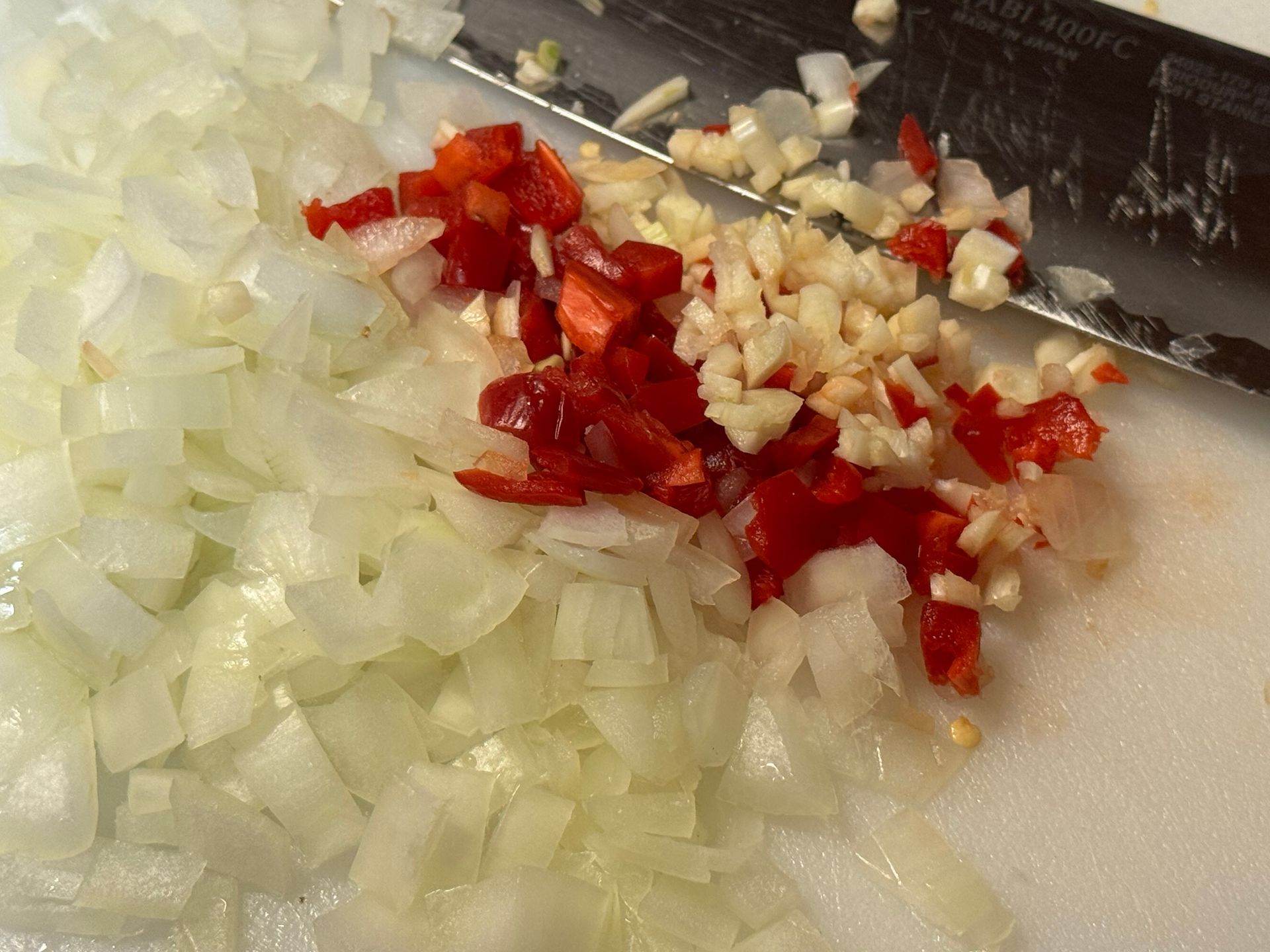
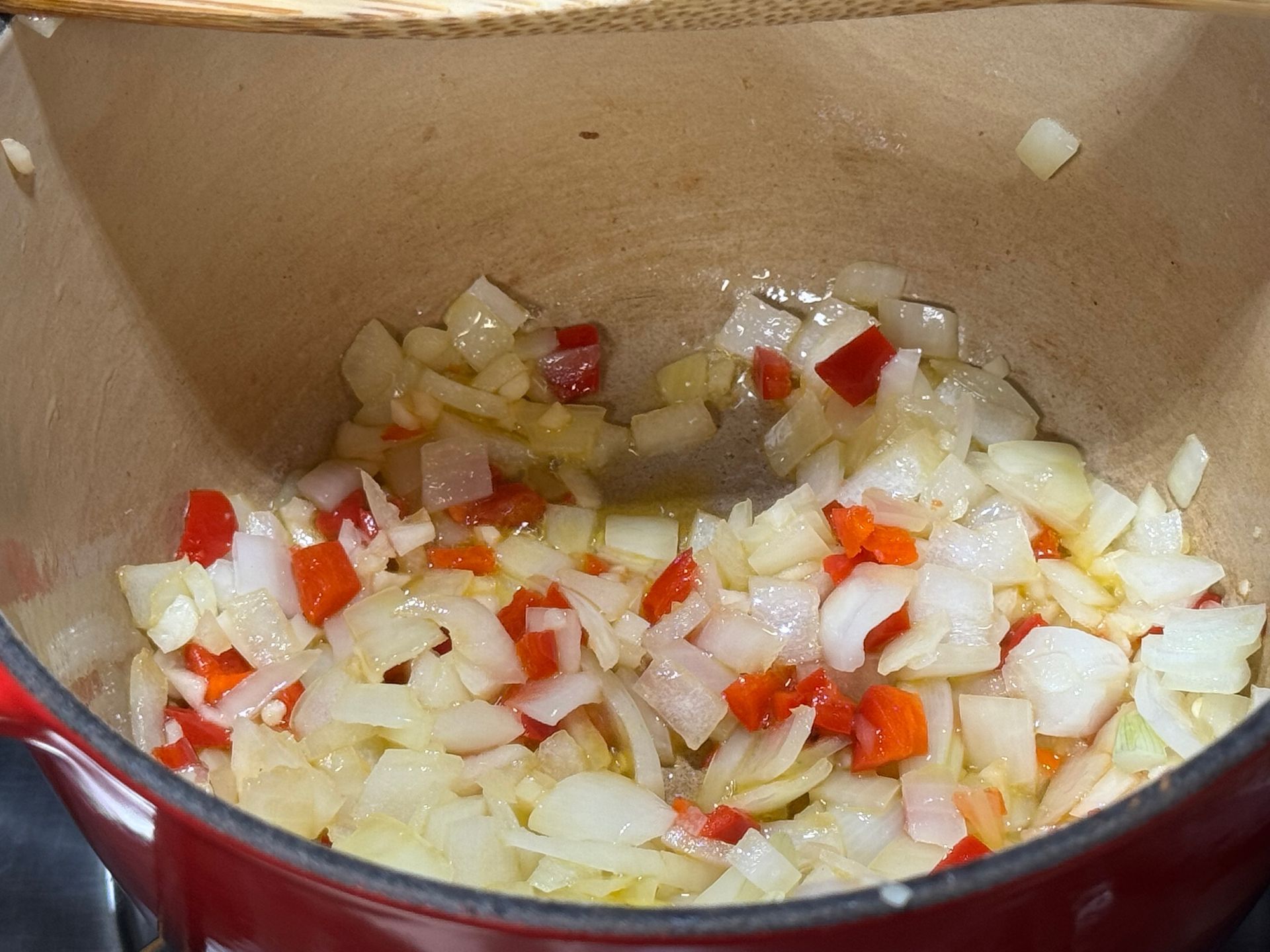
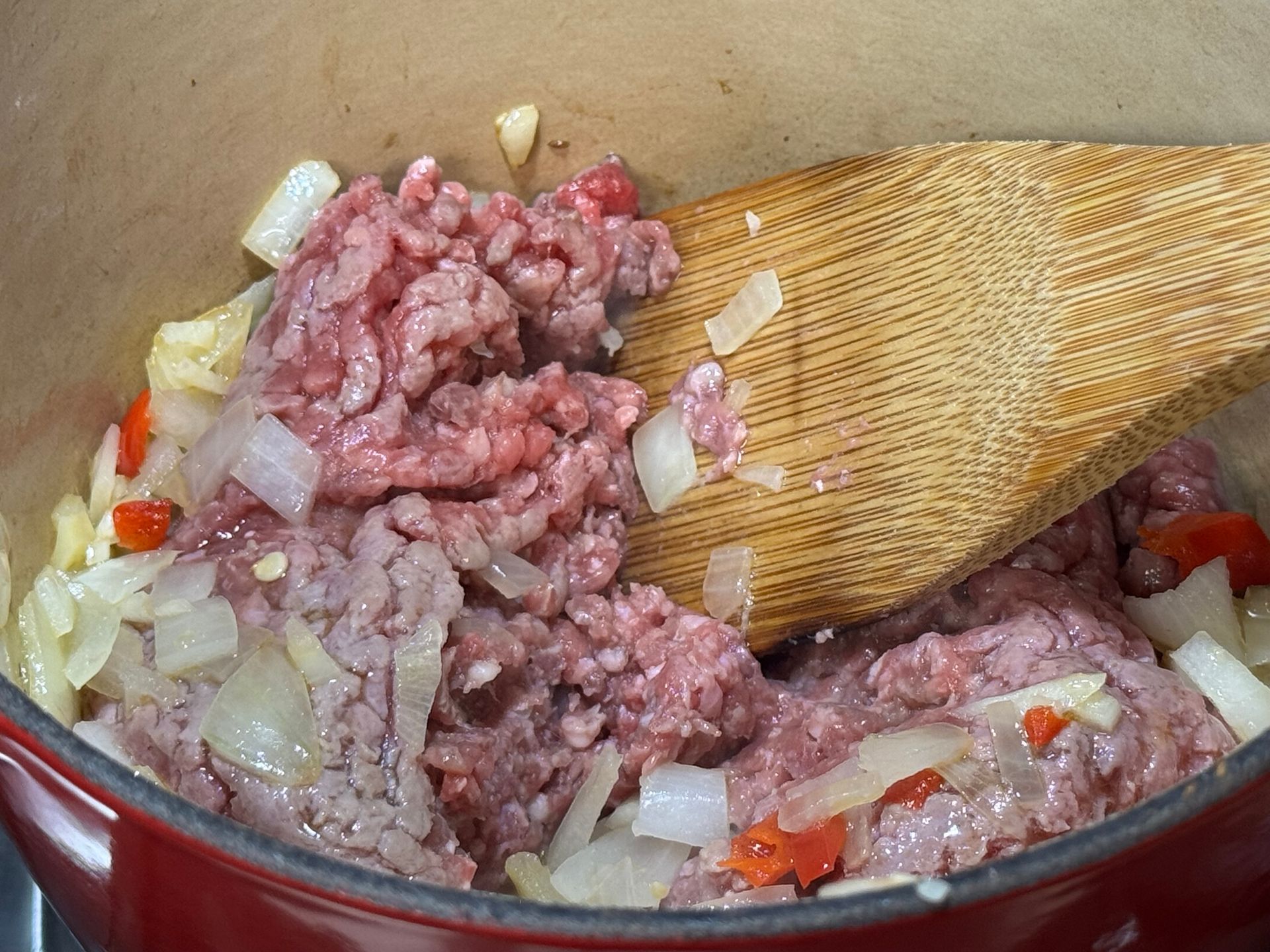
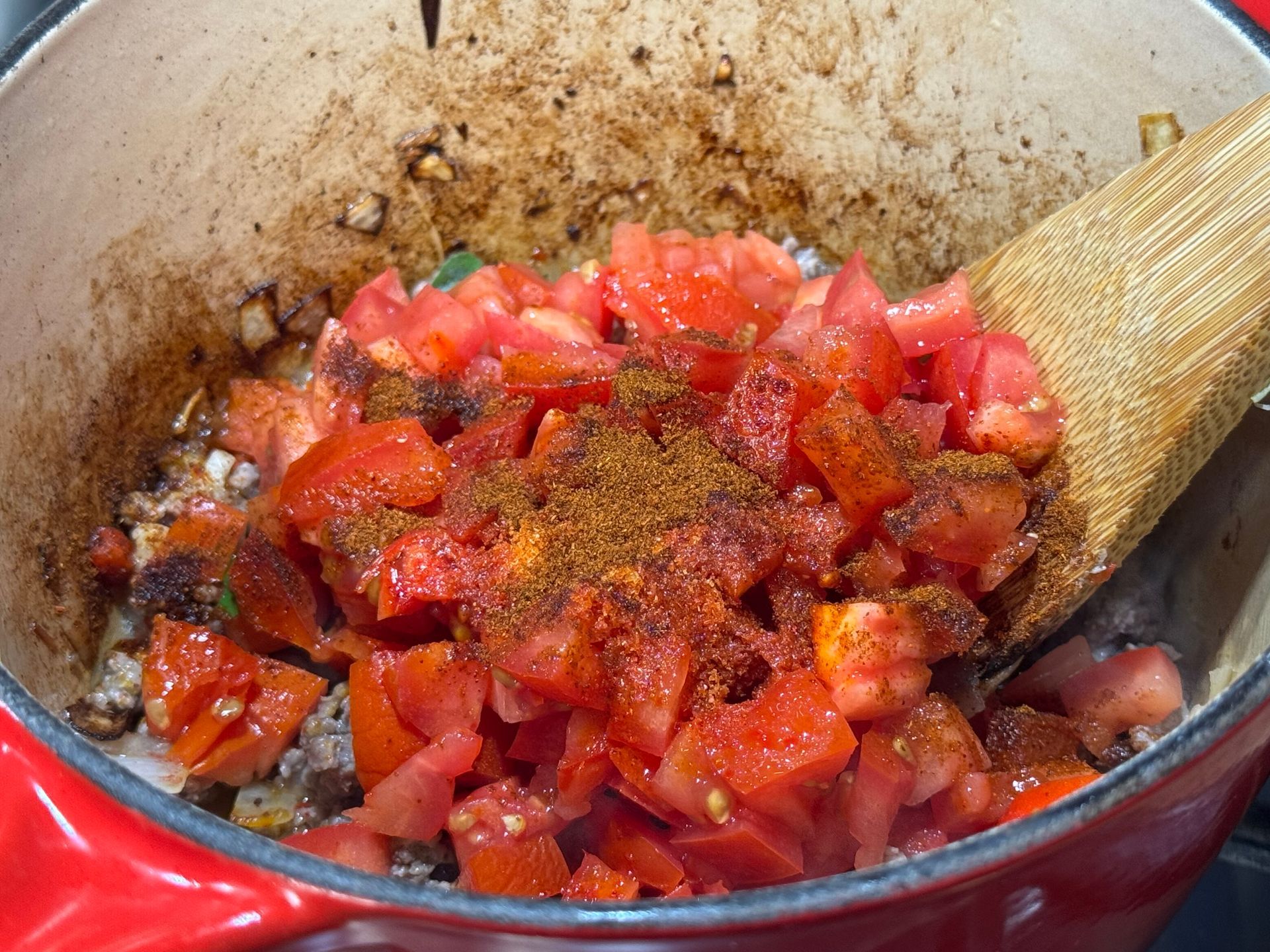
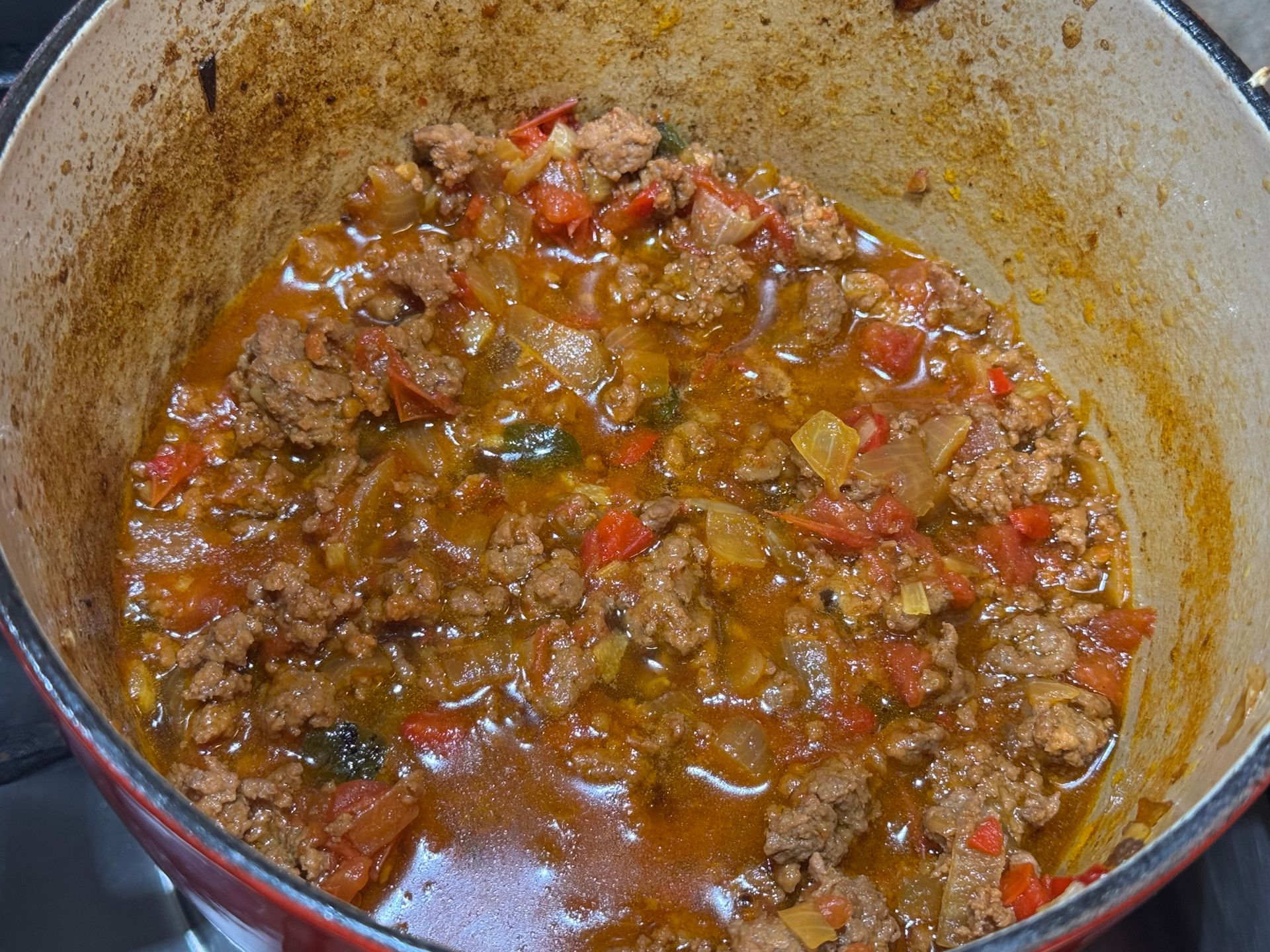
Step 2
Dice the onions, peppers and tomatoes; mince the garlic. Reserve.
Step 3
Heat a heavy sauce pot, add the olive oil; when the oil is hot add the onions, peppers and garlic; cook until translucent; it's fine if the vegetables begin to brown. Stir with a wooden spoon. (about five minutes)
Add the tomato paste to the onions and continue to brown for three minutes.
Step 4
Add the ground meat and mix into the tomato/ onion mixture with a wooden spoon. Cook for 10 minutes at low heat, stirring and breaking up the meat as it cooks/clumps into small 'meatball' shapes.
Step 5
Slowly add the veal sauce, diced tomatoes and toasted spices to the chili, stirring into a smooth, homogeneous mixture.
Put on low heat and cook for 30 minutes, stirring occasionally.
Be careful not to scorch.
Top with sour cream, shredded cheddar, diced tomatoes, avocado, tortilla chips etc...
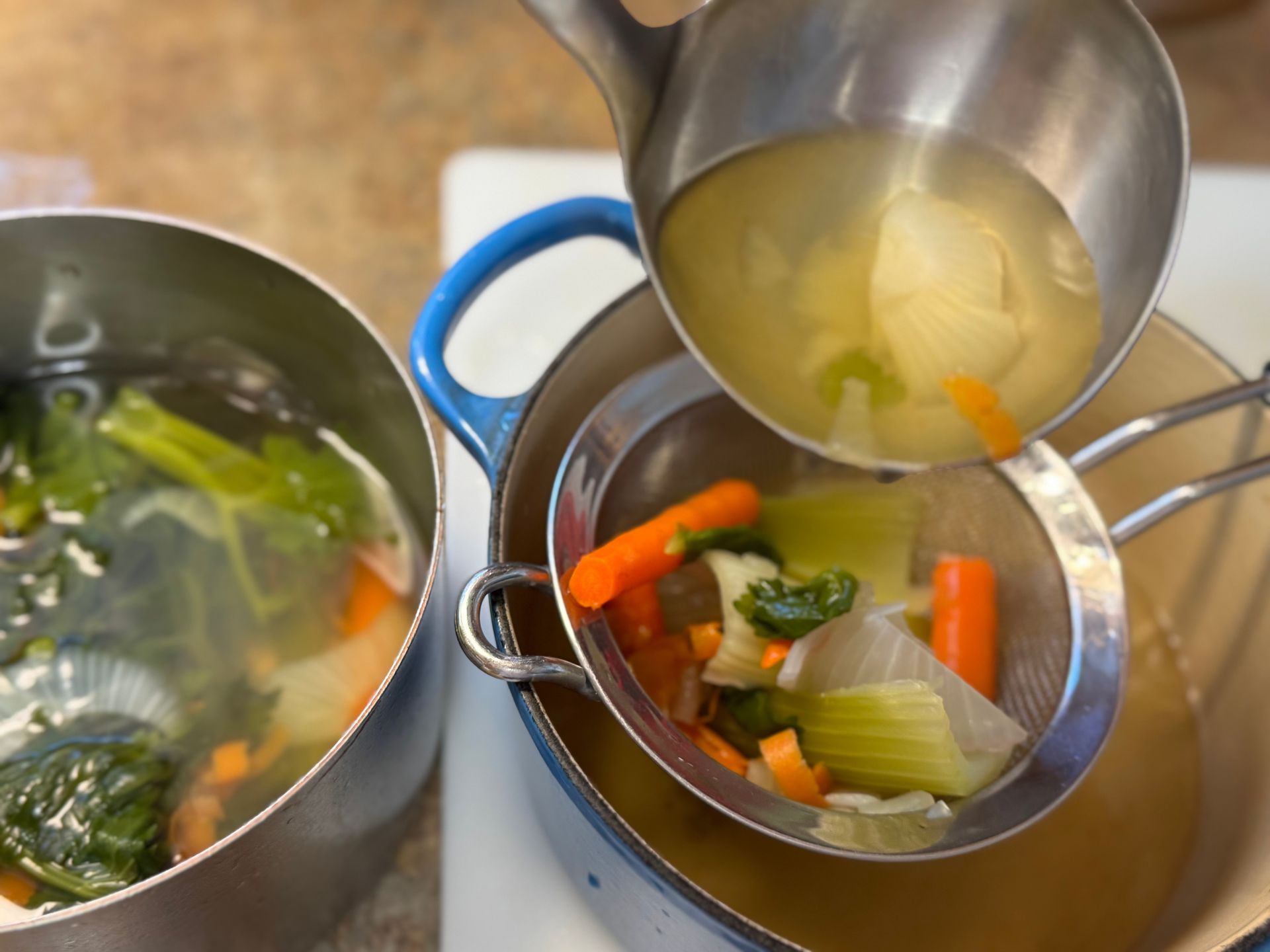
I recently volunteered to prepare vegetable paella for a church Bible group potluck. I was very excited to develop a delicious, new paella recipe and spent time preparing fresh vegetable stock with flavors of the Mediterranean. I always prepare vegetable and fish stocks fresh, as I intend to use them. I’m not a fan of bases or frozen stocks but I sometimes add a small amount of quality base to my stocks. A vegetable stock with mirepoix, cabbage, mushrooms makes sense in certain applications, for certain recipes—but why would we use a mushroom or cabbage-forward stock in a paella? It doesn’t make culinary sense. Paella is a Mediterranean dish originating in the Valencia region of Spain as a humble meal cooked on an open fire. I’ve enjoyed wonderful paella meals in Valencia prepared with water-not stock, prepared with rabbit, snails and local beans. While traveling through Spain this spring I researched and sampled many styles of paella… no mushrooms, no carrots, no celery and no cabbage.
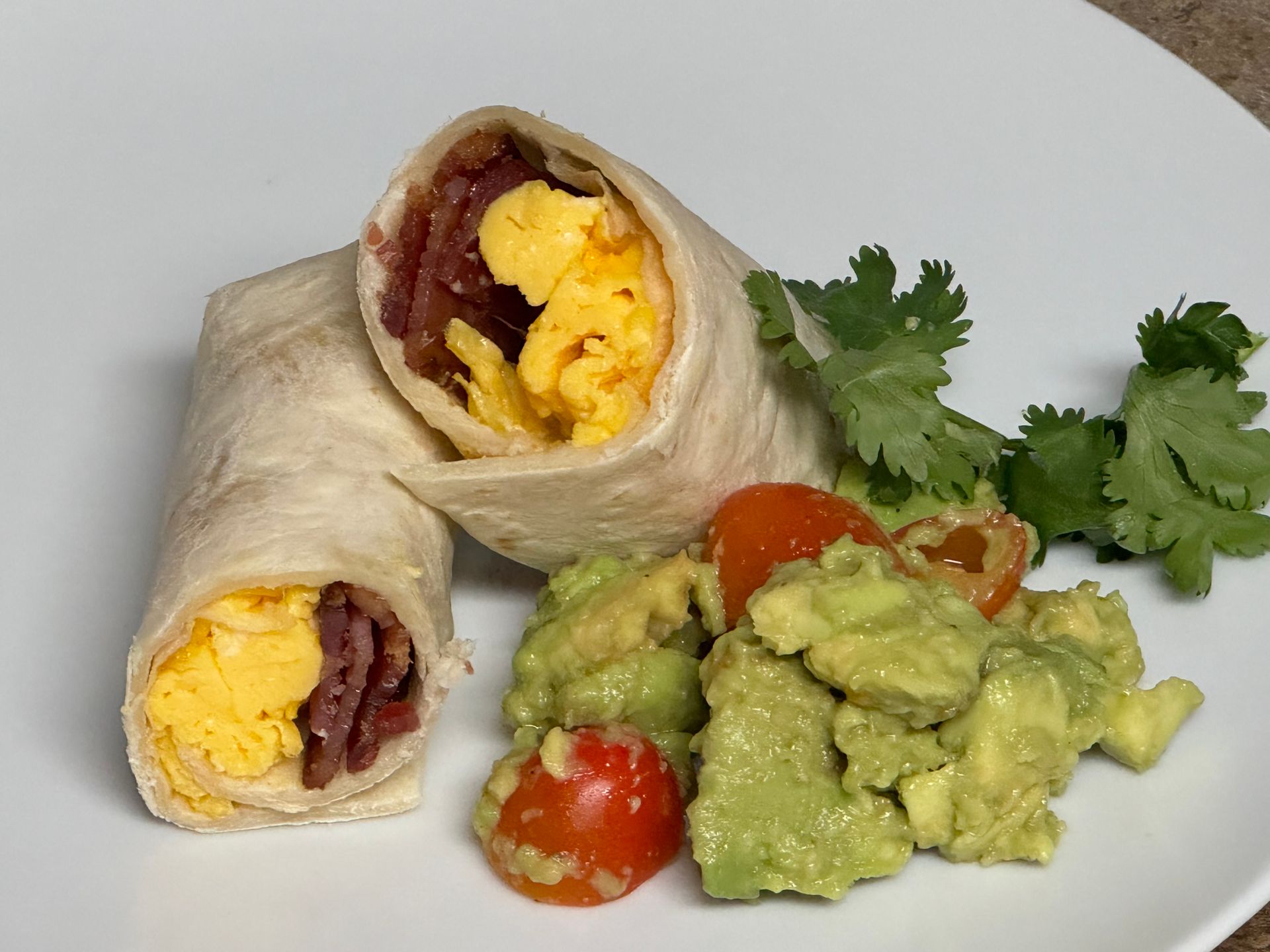
I still remember cooking breakfast burritos with my son Daniel, for volunteer workers at church events—simple, hearty, and made to fuel a long day of service. The workers were always so appreciative. Years later, I served a crowd favorite, nicknamed “The Bacon-ator,” a breakfast superstar inspired by the over-the-top spirit of fast-food indulgence. We had a popular food booth at the local country fair, where we cooked hundreds of breakfast burritos each day-stuffed with Mexican cheeses, extra bacon, fluffy scrambled eggs, and fresh salsa—nothing pre-made, nothing rushed. Every burrito was warm, fresh, and full of flavor. When food is made with love, even the most straightforward breakfast is memorable.
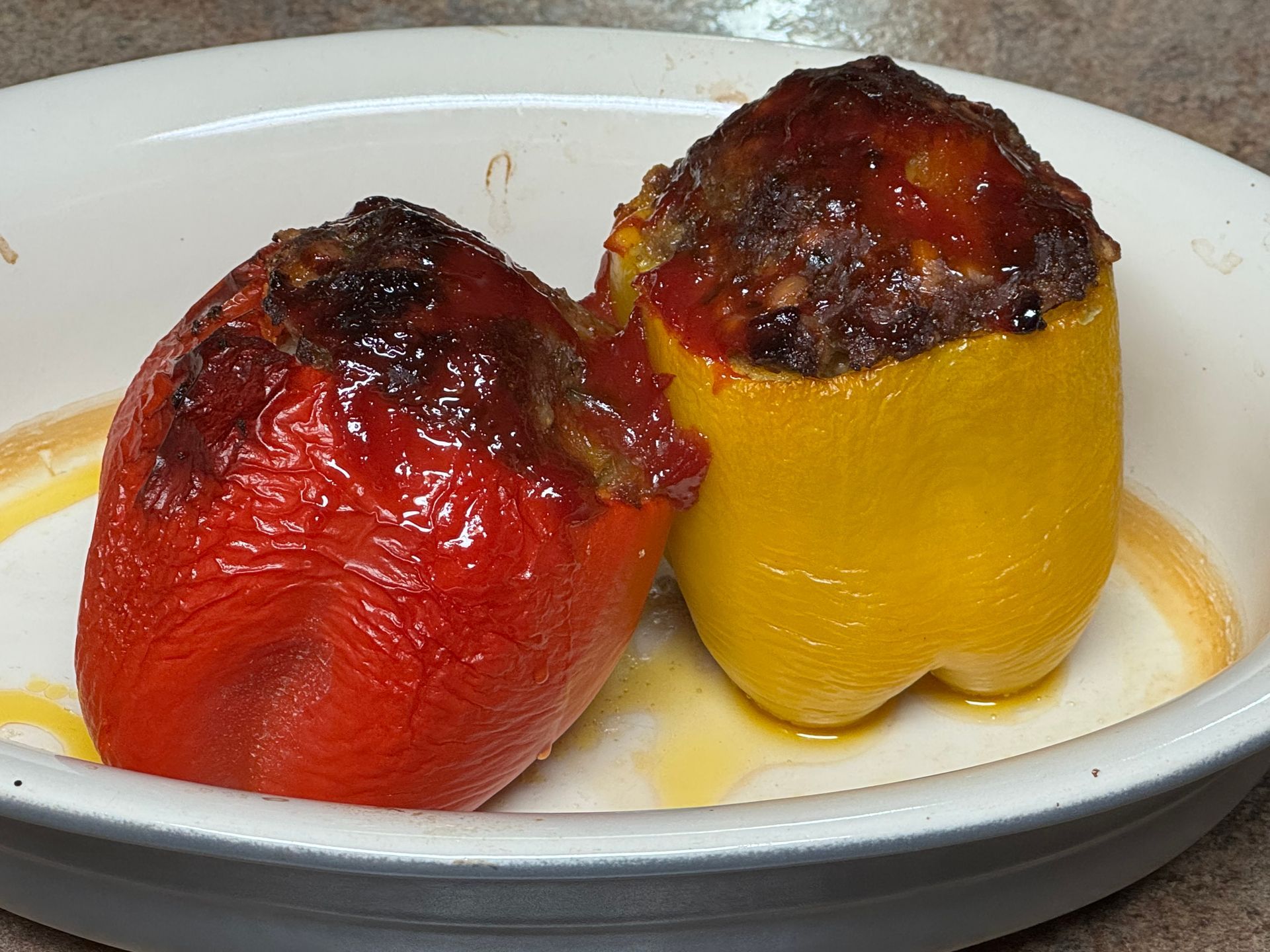
Chefs often share a bond that transcends politics, religion, and borders. While working in Saudi Arabia with a diverse group of chefs, I experienced this firsthand on my final day. To mark the occasion, they prepared special dishes representing their home countries—a generous feast rooted in tradition and pride. At the center of the table was a beautiful tray of stuffed peppers, zucchini, cabbages, squash, and other vegetables, each prepared with care and respect. As we shared the meal, the chefs beamed with pride, and the room filled with a sense of genuine camaraderie. It was a powerful reminder that food remains one of the most universal languages we have.
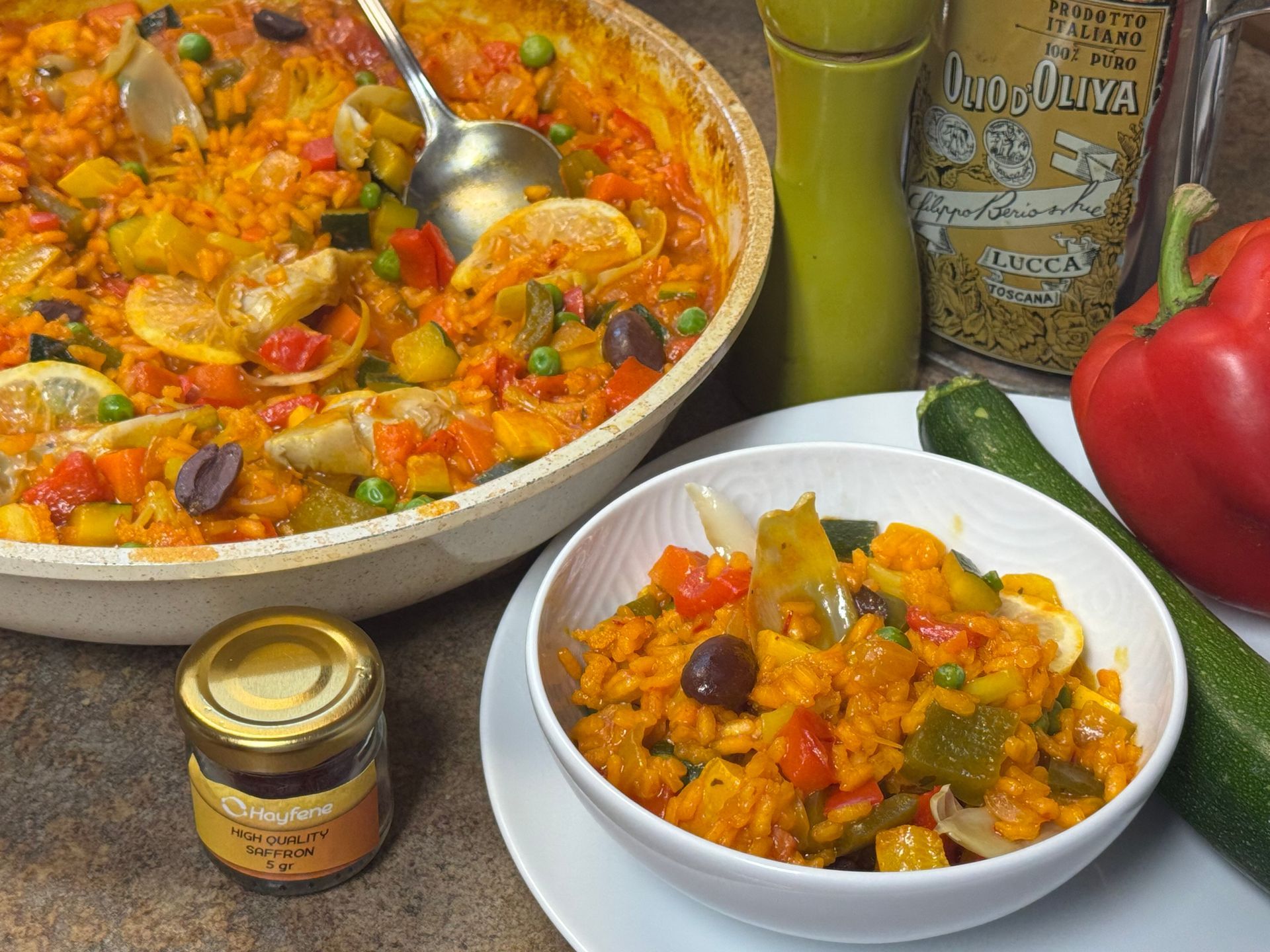
Paella is a Mediterranean dish originating in the Valencia region of Spain. It is a humble meal, originally cooked on an open fire. I’ve enjoyed many wonderful paella meals in Spain. In Valencia I had a local paella with rabbit, snails and local beans. Short-grained rice is always used to prepare Paella, there are several great Spanish varieties like Bomba and Calasparra , prized for absorbing the delicious, flavorful stock and flavors of the ingredients without getting mushy. This is important for creating the dish's signature, crusty bottom layer called the socarrat. Paella is all about the rice!
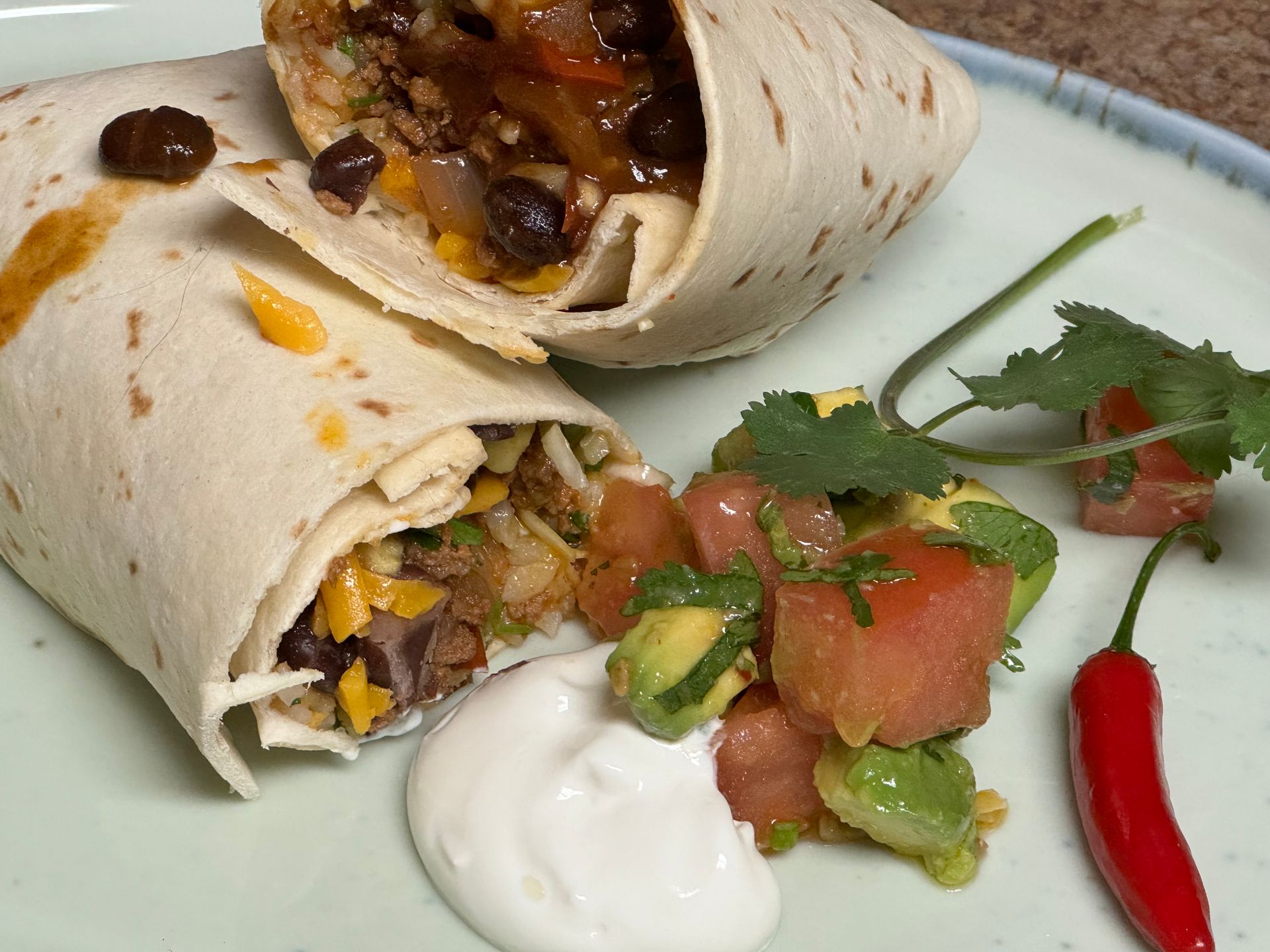
I still remember cooking breakfast burritos with my son Daniel, for volunteer workers at church events—simple, hearty, and made to fuel a long day of service. The workers were always so appreciative. Years later, I served a crowd favorite, nicknamed “The Bacon-ator,” a breakfast superstar inspired by the over-the-top spirit of fast-food indulgence. We had a popular food booth at the local country fair, where we cooked hundreds of breakfast burritos each day-stuffed with Mexican cheeses, extra bacon, fluffy scrambled eggs, and fresh salsa—nothing pre-made, nothing rushed. Every burrito was warm, fresh, and full of flavor. When food is made with love, even the most straightforward breakfast is memorable.
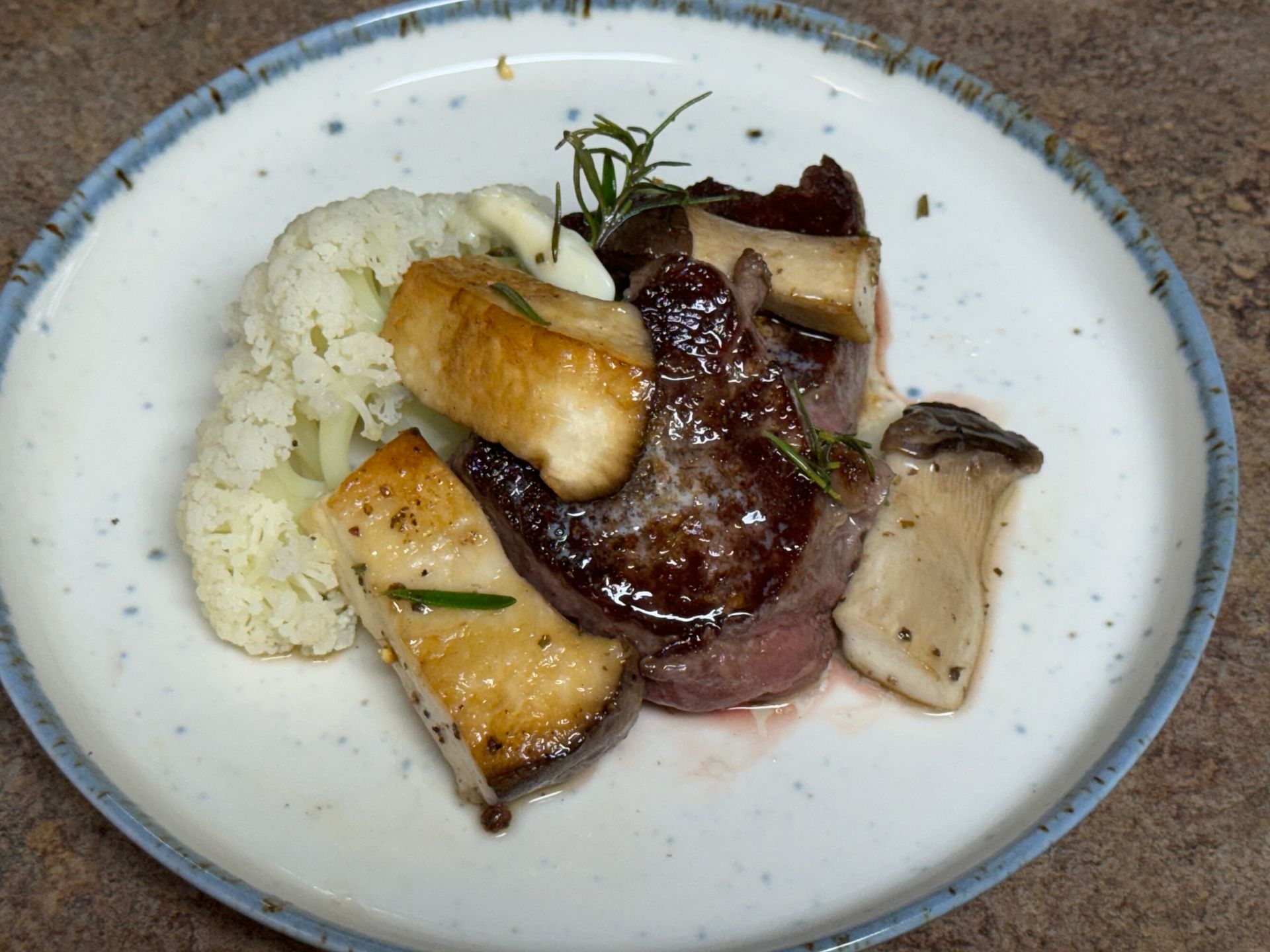
Beef Wellington is a restaurant classic! Chefs prepare whole tenderloins, wrapped in pastry as well as individually portioned Wellingtons. Culinary historians widely agree that Beef Wellington evolved from French preparations such as filet de bœuf en croûte, which paired beef tenderloin with mushrooms and pastry—techniques well established in French haute cuisine.

Oranges are fantastic in Baking & Pastry. I developed a delicious dessert for the CMC exam (Healthy Cooking) challenge featuring Orange Creamsicle Sorbet with Roasted, Candied Pineapple and Fruit Strudel... with plenty of guidance from the amazing CIA Pastry Instructors! Types of Oranges: There are several distinct varieties of oranges, each with unique characteristics and flavors. The most common type is the Navel orange , recognized for its seedless, sweet flesh and thick, easy-to-peel skin. Valencia oranges are another popular variety, primarily known for their juiciness and are often used for making orange juice. Other notable types include Blood oranges , which have a deep red interior and a distinct berry-like flavor, and Cara Cara oranges , characterized by their pinkish-red flesh and sweet taste. Additionally, Seville oranges , known for their bitterness, are mainly used in making marmalade and flavoring liqueurs.

